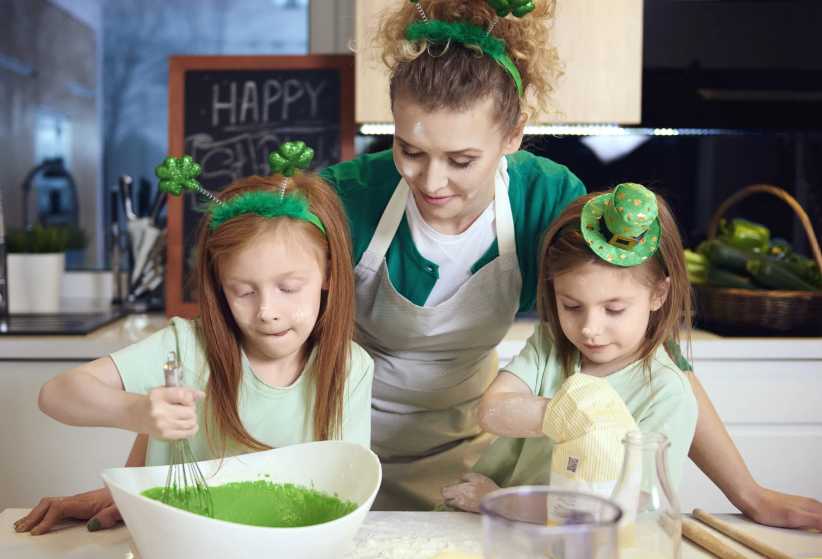For decades, there’s been an increasing obesity rate in children, but in 2011, there was a reported decline in obesity in New York City schoolchildren spanning kindergarten through eighth grade. In fact, the obesity rate for this age group fell by 5.5 percent over a five year period, though it continued to climb for New York City teenagers and adults.
New York City officials were especially ecstatic over the drop in obesity for young children because of their recent attempts to combat obesity — putting calorie counts on menus at restaurants, an advertising campaign against sugary sodas, restrictions on school vending machines, and adding salad bars to some school cafeterias.
The decline in obesity was documented by the city during the public schools’ annual physical education tests that are now completed by most of the city’s kindergarten through eighth grade students.
City officials also observed trends among the participating schoolchildren. By age group, the decline was highest among 5- and 6-year-olds at 9.9 percent. By race, the drop in obesity was highest among whites (12.5 percent) and Asian children (7.6 percent), and lower for Hispanic (3.4 percent) and black (1.9 percent) children.
Dr. Marlene Schwartz, deputy director of the Rudd Center for Food Policy and Obesity at Yale University, concluded that younger children, who respond better to adult direction, and children from more affluent families, which have the resources to change, were easiest to reach.
It may appear that there is a great disparity in public schools in obesity rates among children of different socioeconomic backgrounds. First Lady Michelle Obama has led a nationwide push to change young children’s eating and exercise habits in 10,000 child care centers across the country, and many of these participating child care centers, including some in the New York City area, are in low-income communities.
In August 2013, a government report was issued stating that for the first time in decades, obesity rates among preschool-age children from poor families fell in 19 states, including New York, between 2008 and 2011. Some of the reasons for the change were attributed to Obama’s initiative, an increase in breast-feeding, a drop in mothers giving their children sugary fruit juices, and changes in the food offered in federal nutrition programs for women and children.
Buoyed by such positive feedback, city officials now seem to be praising every suggestion possible in an effort to get parents to teach their young children about good eating habits. New insights in the crusade against obesity are now being researched and studied, but some of the information being published nowadays appears to be questionably beneficial.
For example, a new study published in the Journal of Academy of Nutrition and Dietetics recommends the strategy of pairing a new food with something a person already likes, which is referred to as “associative conditioning.” The study states that if parents give their children a new vegetable to eat, the child will not likely consume it by itself. However, if that child is given cream cheese to dip the vegetable into, then the child will be more likely to eat the vegetable.
The premise of the study sounds simple, but after you read in detail what actually happened during the data collection, you can take some grains of wisdom from the results and disregard the study’s dubious testing tactics. To begin with, 29 children (13 boys and 16 girls) aged 3 to 5 years were included in the data analyses. They were served food in a school room setting starting at 9 am. Children received the vegetable snack five days a week, from Monday through Friday.
Children were put into groups of five or six each and seated in different rooms, so they would not be influenced by another group’s opinion. All the children were first served Brussels sprouts alone. Next, they were served the sprouts with cream cheese, and then later they were served the vegetable with sweetened cream cheese. The same tests were done with cauliflower. All the vegetables were cooked in boiling water for up to seven minutes. Each vegetable (alone or with cream cheese) was tested for seven days.
According to the results, the children liked Brussels sprouts more with cream cheese. (Whether it was sweetened or unsweetened did not matter.) As for cauliflower, there were no significant differences among the children in liking the vegetable alone or with cream cheese. Researchers believe the children’s more pronounced liking of Brussels sprouts with cream cheese was due to the fact that it was the more bitter vegetable.
When I spoke with Dr. Dyan Hes, medical director of Gramercy Pediatrics and an obesity specialist on the American Board of Obesity Medicine, about the study, she said she didn’t like the idea of vegetables being eaten with cream cheese, because she said a food should not be sweetened just so a child will like it. Believing that children should be exposed to and enjoy a variety of tastes, Dr. Hes says her children come home from school “craving lentil soup.” She said recent research studies also found that children who were breast-fed as babies were more inclined to eat a greater variety of flavors.
I commented on the fact that cream cheese was high in fat, but when I put olive oil, salt, and pepper on the Brussels sprouts and then roasted them in my oven, my daughter loved them.
Dr. Hes also critiqued the study because she felt that the number of children evaluated was too small. Nevertheless, she thought the 3 to 5 year age range for taste testing was perfect.
“It’s better to start them earlier,” Dr. Hes said.
Another aspect of the study that Dr. Hes liked was that the evaluations were conducted in classrooms. If a child is served Brussels sprouts at school, Dr. Hes thinks that child will be more likely to eat them at home as well.
In sum, the study of “associative conditioning” isn’t perfect, but the lessons learned from it are invaluable: start children eating a variety of healthy foods at an early age, to ward off obesity in the future.
Allison Plitt is a freelance writer who lives in Queens with her husband and young daughter. She is a frequent contributor to New York Parenting.




















